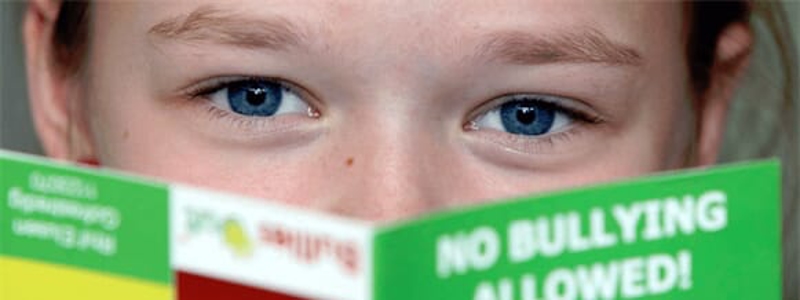Parents whose children are bullied often feel helpless and frustrated. You want to protect your child, but they may feel too embarrassed or intimidated to confide in you. With Pink Day in February, more and more children and families are gaining awareness of the effect bullying has on others and taking action to help those in distress.
Not only do children have to contend with aggression and bullying at school, but now social media opens the door to online bullying; something teachers and parents are finding more difficult to detect. There are many steps that you can take to prevent bullying and to deal with unacceptable behavior when it does occur.
Signs that your Student is being Bullied
You know your child better than anyone else, so when abnormal behavior exhibits itself, pay close attention. Kids do go through phases, but if they display one or more of these behaviors, it may be time to take action:
- Not wanting to go to school and skipping after-school activities
- Low self-esteem
- Being overly self-critical
- Losing money or other items they take to school
- Irritability and unhappiness
- Depression
- Displaying anxiety or fear
- Isolating themselves and not spending time with friends or peers
- Sudden unexplained recurring illnesses like headaches or stomach aches
- Disturbed sleep patterns
Children may not feel comfortable telling you about their situation. This can be because the initial teasing started as a result of something embarrassing they did or perhaps something they aren’t supposed to be doing. They could also be intimidated by the threat of reprisals or the fear that you stepping in may embarrass them even more.
Talk to your Students
Keep the lines of communication open, even if your efforts are not reciprocated. Your children must feel like they have a safe place at home and that they can confide in you without fear of being punished. Speak with your child’s teachers as they have a really good insight into what is going on at school.
If you child doesn’t feel comfortable speaking to you, encourage them to confide in a friend, family member or mentor instead.
Follow Procedures
Of course your natural instinct here is to save your child as soon as possible, but rash or angry exchanges are unlikely to ensure a positive result for your child. Instead, speak with their teachers and administrators about the right way to resolve the problem.
Most schools have strict bullying policies in place and can help you to deal with bullying in a way that is constructive for both the aggressor and the victim. Be sure to include your student in any discussions about what action is to be taken when dealing with situations that directly affect them.
If the school is unwilling to take action, discuss ways of dealing with bullies with your child. Role play different scenarios so that they are confident and equipped with the tools they need to deal with the situation better.
Many times students that are the victim of a bullying incident lose confidence and their academics slide. Some of them develop anxiety and even begin to shut down and not do any school work. If there are signs of this behavior, we can help. Our private one-to-one tutors are sensitive to these situations, and help boost confidence and grades.

